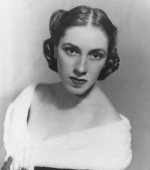Column Name
Title
Oundjian Leads Orchestra
Peter Oundjian is the second alum to debut conducting the Juilliard Orchestra this season—on January 24, he’ll lead Christopher Rouse’s The Infernal Machine, Mozart’s Piano Concerto No. 22 in E-flat Major (with Ping Lin, soloist), and Tchaikovsky’s Fifth Symphony. As was the case with piano alumna Speranza Scappucci, who debuted with the orchestra in November, conducting was a midcareer switch for Oundjian. Born and raised in Toronto, he grew up playing the violin; at Juilliard, where received both his bachelor’s and master’s degrees in 1981, he studied with Ivan Galamian, Itzhak Perlman, and Dorothy DeLay (’42, violin). After graduation, Oundjian was the first violinist with the Tokyo String Quartet until a repetitive stress injury forced him to stop playing as much and inspired him to pursue conducting, which he’d also studied at Juilliard, in the mid-1990s. Since then, he’s had a starry rise and is the music director of both the Toronto Symphony and Royal Scottish National orchestras.
Body
Shebalin at ChamberFest
This year’s ChamberFest, the five-day series of student chamber concerts, opens January 12 with Quartet No. 9 by Vissarion Shebalin. This Soviet composer (1904-63) had two strokes in the 1950s that robbed him of the ability to speak, but amazingly he still continued to teach and compose until 1963, when a third stroke killed him. The piece was proposed and will be performed (in part) by doctoral student Meta Weiss (M.M. ’11, cello).
Weiss became interested in Shebalin’s work after attending a conference at Rice University called Exploring the Mind Through Music and meeting Tufts neuroscientist Aniruddh Patel, the author of Music, Language, and the Brain. For her doctoral research, Weiss studied Shebalin’s string quartets, which, she told The Journal, “chronicle his stylistic changes and ‘periods’ of writing and also document his pre- and post-aphasia writing style and creative process.” Her dissertation is on that process as well as on the politics surrounding Shebalin’s compositions, and how both politics and his medical condition manifest themselves in his music.” This concert is part of ChamberFest but it’s also the Sylff Chamber Music Seminar concert; some of the student performers will be from the Paris Conservatory and Vienna University. Weiss’s research in Moscow was partially funded with a Sylff research grant.
Juilliard PianoScope at The Morgan Library
“It’s not easy writing in a dugout, it’s too cramped and too wet, and all day long one’s ears are ringing with the sound of eternal gunfire. Outside, shells are flying around our heads. … Everything gets shot at here, nowhere can one live for 2 or 3 days in the blissful knowledge of not hearing this beastly noise. In fact we’re no better off than the conscripts in the trenches. You can’t imagine how sick and tired I am of this life. How long does this wretched existence have to go on? Will this stupid breed of idiots never put an end to this devilish war? … But enough of this grumbling, it won’t do any good.”
Composer Paul Hindemith wrote these words while serving at the Western Front in World War I, the nasty, brutish (though not short) cataclysm that began 100 years ago this summer. In the fall, faculty member Aaron Wunsch gave a course on the piano music of World War I, and on December 9, at the Morgan Library, the students who took it will perform short works by 14 composers (among them Ravel, who's pictured; Prokofiev, Stravinsky, Bartók, and Debussy). As part of the program, Juilliard actors will do dramatic readings of World War I poetry and excerpts from composers’ letters. A shorter version of the concert without the dramatic readings takes place in Paul Hall on December 3.
Evening Division Ramps Up for Spring
Itching for more behind-the-scenes info about other upcoming Juilliard performances? The Evening Division has many multifaceted courses this spring, and many are related to performances, including dramaturg Shana Komitee’s short course connected to the third-year actors’ Shakespeare repertory. Other highlights of the spring catalog include The American Symphony in the 20th Century; Beyond Practicing: Skills for Optimal Performance; The Basics of Singing; Introduction to Music Technology; Understanding the Music Business; and Music Theory and Analysis.
Archives Commemorates Rosalyn Tureck’s Centennial
A new exhibit in the Juilliard Archives, which will be up through December 19, celebrates Rosalyn Tureck’s many years at Juilliard. A pianist and harpsichordist who devoted more than six decades to the performance and study of the music of Johann Sebastian Bach, Tureck (1914-2003) moved to New York at the age of 16 to study with Olga Samaroff at the Juilliard Graduate School on fellowship. As a student, she was an accompanist for Paul Kochanski and also Madame Samaroff’s teaching assistant. Before graduating with distinction in 1935, Tureck won the National Federation of Music Clubs competition and the Schubert Memorial Award for appearances with the Philadelphia Symphony Orchestra. Tureck was a member of the Juilliard faculty from 1944 to 1956, and from 1972 to 1992 she gave lectures and master classes here, including classes in Bach transcription for guitar. Among her students were Sharon Isbin, Edgar Roberts, Thomas Brockman, Kurt Saffir, and Charles Wadsworth.






